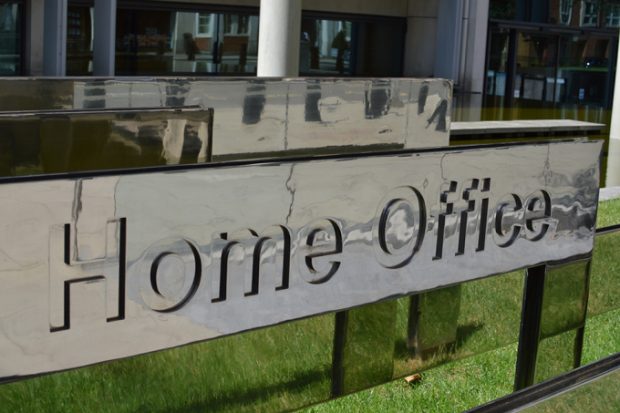
Today's leading stories include reports on efforts to stop small boats crossing the English Channel and the release of hate crime statistics.
Channel crossings
The Times, Telegraph, Mail and Express report on increased efforts to curb the number of migrants attempting to cross the Channel.
According to the Times, police patrols on French beaches are to double as France and the UK try to halve the number of migrants trying to cross the Channel.
Coverage also notes that new detection technology will be deployed to help identify small boats attempting to make the crossing.
Home Secretary, Priti Patel said:
As Home Secretary, I have a duty to protect our borders and prevent the loss of life. That’s why I am absolutely committed to doing everything in my power to stop these dangerous Channel crossings which are putting vulnerable lives at risk.
The plan we have agreed builds on the extensive joint work we are already doing with our French neighbours, and I am confident that it will lead to a considerable reduction in this illegal activity.
Hate crime statistics
The latest hate crime statistics release is covered with a number of different angles taken by the newspapers.
The Guardian coverage notes that police recorded hate crime has more than doubled since 2013. It adds that the majority of hate crime (78,990) was racial in nature, but noted that transgender identity crimes have risen 37% in a year.
The Mail reports that those behind transgender hate crime could face up to six months in jail. It added that hate crimes have reached an all-time high – passing the 100,000 mark for the first time.
The Sun and Telegraph reports led with the 37% increase in transphobic hate crime. The latter noted that the increases are putting more pressure on police, who are “pandering” to special interest groups.
The “online echo chamber” is one driver behind the increase, the Times reports, quoting Lord Evans of Weardale, chairman of the Committee on Standards in Public Life. He told the paper that abuse is now “instantaneous and anonymous”. Online abuse also leads the Independent’s coverage, with the paper saying that “online communities of hate” are driving a “worrying trend” on online homophobia.
Reports note that the rise in hate crime could in part be down to improvements in recording as well as increasing awareness.
A Government spokesperson said:
Any incident of hate crime is completely unacceptable. No one should be targeted because a hateful minority cannot tolerate the differences that make our country great.
We are encouraged that more people are willing to report hate crime and that police continue to improve their response to victims.
Partners across the criminal justice system, government and in the community are working hard to empower those affected and ensure perpetrators are punished.
Homeless immigration information
The Guardian reports that the Home Office is using information gathered in "immigration surgeries" at charities and places of worship to deport vulnerable homeless people who are told attending will help them get financial support.
Under the headline ‘Home Office 'infiltrating' safe havens to deport rough sleepers’, the paper reports that interviews and internal emails have revealed that the Salvation Army, Sikh temples and a Chinese community support centres are among bodies allowing Home Office teams in London to run sessions in spaces intended to be safe havens for homeless people.
According to the paper, attendees are reassured that the sessions are not part of “an enforcement approach” to immigration cases and told that taking part may help them regularise their status.
A Government spokesperson said:
The Rough Sleeping Support Service is not using charities or local authorities to target rough sleepers for removal. It was established last year to help non-UK nationals sleeping rough resolve their immigration cases and access support.
Charities and local authorities use the service on an entirely voluntary basis and no information is passed to the Home Office for assistance without individuals’ knowledge.
Immigration surgeries give people the opportunity to speak to immigration officers about the steps they should take to regularise their stay or to get practical support to return voluntarily. They make clear that they are Home Office immigration officers and do not provide immigration advice.
The Home Office asked for example cases to better understand the cohort of rough sleepers so that the RSSS could consider how the service could support such individuals. No attempt was made to match any information with Home Office data."
